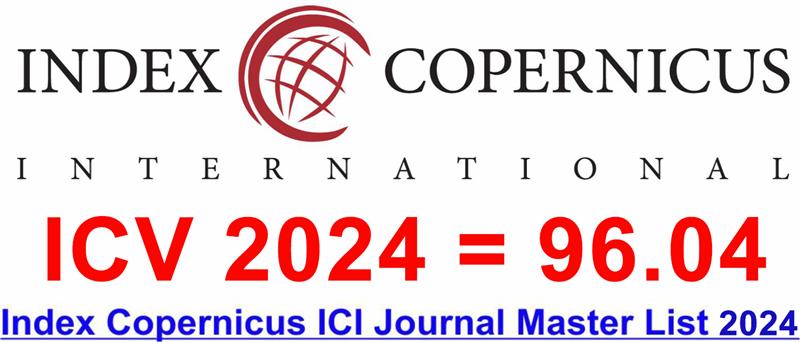Driver Education and Awareness of In-Vehicle Air Pollutants and Health
DOI:
https://doi.org/10.60072/ijeissah.2024.v2i03.006Abstract
Background: The confined space of vehicle cabins exposes drivers and passengers to high levels of pollutants such as carbon monoxide (CO), volatile organic compounds (VOCs), carbon dioxide (CO2) and particulate matter (PM). Rising levels of in-vehicle air pollutants in public transport are of public health concern in sub-Saharan Africa. This study explores the educational levels of commercial vehicle drivers and their association with in-vehicle pollution. Methods: Employing a mixed-method approach, the study utilized a self-administered questionnaire and air pollutant exposure monitors. Purposive sampling selected 89 drivers and corresponding 89 passengers of vehicles that travel an average of 1 hour per trip. Logistic models and non-parametric tests were used for statistical analyses. Results: Findings show that CO and PM are common in-vehicular air pollutants at different levels across diverse compartments in a vehicle. In addition, 64% of drivers had formal education up to the senior high school level. Breathlessness and coughing were respiratory symptoms common among drivers with a low level of education compared to their highly educated counterparts. Moreover, drivers had limited knowledge of the negative impact of in-vehicular air pollutants on respiratory health. Drivers predominantly associated pollution with exhaust emissions. Conclusion: The pivotal role of formal education in mitigating in-vehicle air pollution is emphasized by the study. It advocates for intensified driver education initiatives that result in the protection of both drivers and passengers from the health risk of pollution.
Keywords:
Air Pollutants, Commercial Drivers, Vehicles, Respiratory SymptomsReferences
Akbari, M., Lankarani, K. B., Heydari, S. T., Motevalian, S. A., Tabrizi, R., & Sullman, M. J. (2021). Is driver education contributing towards road safety? a systematic review of systematic reviews. Journal of injury and violence research, 13(1), 69.
Campagnolo, D., Borghi, F., Fanti, G., Keller, M., Rovelli, S., Spinazzè, A., … & Cavallo, D. M. (2023). Factors affecting in-vehicle exposure to traffic-related air pollutants: A review. Atmospheric Environment, 295, 119560. https://doi.org/10.1016/j.atmosenv.2022.119560
Dhanvijay, R., & Pohekar, S. (2021). Assessment of Auto-Rickshaw Drivers Knowledge Regarding the Effects of Air Pollution on Health and Its Prevention. Journal of Pharmaceutical Research International, 33(39B), 20-26. https://doi.org/10.9734/jpri/2021/v33i41B32340
Etim, E. U. (2016). Air pollution emission inventory along a major traffic route within Ibadan Metropolis, southwestern Nigeria. African Journal of Environmental Science and Technology, 10(11), 432-438. https://doi.org/10.5897/AJEST2016.2107
Egondi, T., Muindi, K., Kyobutungi, C., Gatari, M., & Rocklöv, J. (2016). Measuring exposure levels of inhalable airborne particles (PM2. 5) in two socially deprived areas of Nairobi, Kenya. Environmental research, 148, 500-506. https://doi.org/10.1016/j.envres.2016.03.018
Mohd Firdaus, O., & Juliana, J. (2014). Exposure to indoor air pollutants (PM10, CO2 and CO) and respiratory health effects among long distance express bus drivers. Health, 5(3), 66-85
Gany, F., Bari, S., Prasad, L., Leng, J., Lee, T., Thurston, G. D., ... & Zelikoff, J. T. (2017). Perception and reality of particulate matter exposure in New York City taxi drivers. Journal of exposure science & environmental epidemiology, 27(2), 221-226. https://doi.org/10.1038/jes.2016.23
Hsu, D. J., & Huang, H. L. (2009). Concentrations of volatile organic compounds, carbon monoxide, carbon dioxide and particulate matter in buses on highways in Taiwan. Atmospheric Environment, 43(36), 5723-5730. https://doi.org/10.1016/j.atmosenv.2009.08.039
Kadiyala, A., & Kumar, A. (2013). Quantification of in-vehicle gaseous contaminants of carbon dioxide and carbon monoxide under varying climatic conditions. Air Quality, Atmosphere & Health, 6, 215-224. https://doi.org/10.1007/s11869-011-0163-2
Lim, S., Barratt, B., Holliday, L., Griffiths, C. J., & Mudway, I. S. (2021). Characterising professional drivers’ exposure to traffic-related air pollution: Evidence for reduction strategies from in-vehicle personal exposure monitoring. Environment International, 153, 106532. https://doi.org/10.1016/j.envint.2021.106532
Odonkor, S. T., & Mahami, T. (2020). Knowledge, attitudes, and perceptions of air pollution in Accra, Ghana: a critical survey. Journal of environmental and public health, 2020(1), 3657161. https://doi.org/10.1155/2020/3657161
Perez, L., & Kuenzli, N. (2010). The Year of the Lung: outdoor air pollution and lung health. Swiss medical weekly, 140(4546), w13129-w13129. https://doi.org/10.4414/smw.2010.13129
Quinn, A. K., Ayuurebobi, K., Jack, D. W., Boamah, E. A., Enuameh, Y., Mujtaba, M. N., ... & Asante, K. P. (2016). Association of Carbon Monoxide exposure with blood pressure among pregnant women in rural Ghana: evidence from GRAPHS. International journal of hygiene and environmental health, 219(2), 176-183. https://doi.org/10.1016/j.ijheh.2015.10.004
Raftery, S. J., & Wundersitz, L. N. (2011). The efficacy of road safety education in schools: A review of current approaches. Criminology, 50(March), 88-100.
Ashkan, S., Ghasem, M., Arman, N., Mohammad, R. A., Navid, Y., Seyed, T. H., & Kamran, B. L. (2013). Educational level and age as contributing factors to road traffic accidents. Chinese journal of traumatology, 16(05), 281-285. https://mednexus.org/doi/abs/10.3760/cma.j.issn.1008-1275.2013.05.005
Sharmilaa, G., & Ilango, T. (2022). A review on influence of age of vehicle and vehicle traffic on air pollution dispersion. Materials Today: Proceedings, 60, 1629-1632. https://doi.org/10.1016/j.matpr.2021.12.188
WHO. (2016a). Ambient (outdoor) air quality and health. https://www.who.int/
Ghana: Life Expectancy. Ghana: WHO Statistical Profile, 1–3. https://www.who.int/countries/gha/
























